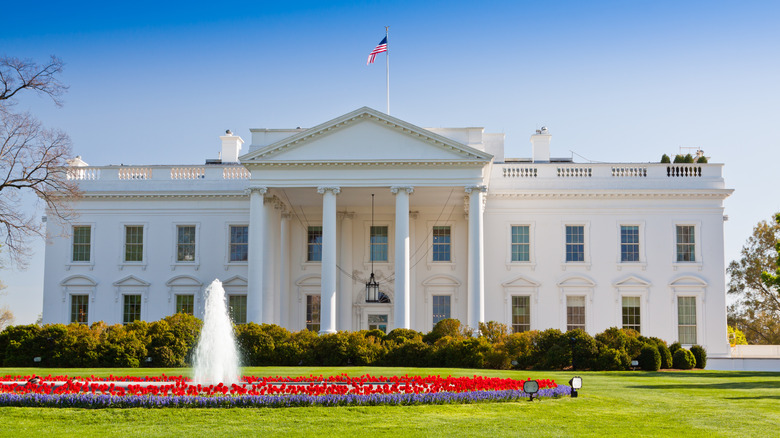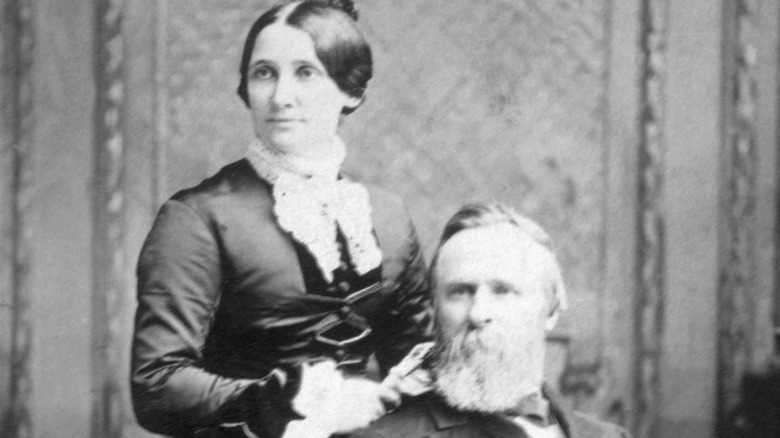The Time Alcohol Was Banned From The White House
Alcohol banning in the United States did not begin with Prohibition. The passage of the 18th Amendment to the U.S. Constitution was just the result of a long-waged battle against alcohol consumption that began during the early 19th century with the beginnings of the Temperance Movement. Several historical figures personified the early decades of the movement, none more so than Lucy Webb Hayes, first lady and wife to President Rutherford B. Hayes. Though the Hayes Administration is relatively forgotten, they were the first to ban the consumption of alcohol in the White House, something that would be repeated on a national scale decades later.
The goal of the Temperance Movement was simple enough: limit and ban the consumption of alcohol in the United States. Led primarily by women, the movement believed alcohol to be the driving cause of domestic violence in households, as well as general vice and poverty. Organizations such as the Women's Christian Temperance Union were directly responsible for campaigns against alcohol.
Lucy Hayes was not a registered member of any particular temperance organization, but her strong beliefs on the matter were instilled during childhood. Though her father died when she was two, her grandfather, a strong proponent of temperance, had brought her up to believe in the tenants of alcohol remittance. So, it came as a natural next step that once her husband assumed the presidency, Lucy, being in charge of the household, would implement some kind of rule.
A matter of principles and politics
The occasion that prompted the White House to forgo serving alcohol happened rather suddenly. Though the Hayes' sympathies towards the Temperance Movement were well known to the American political establishment, the first family nevertheless served a great deal of wine at the administration's first major social event, a party for Russia's Grand Duke Alexis. This occasion left a bitter aftertaste.
Criticism lobbed at the White House, particularly the First Lady, by Temperance organizations about the fact that alcohol was served at an official function. As a result of the criticism, and her own moral principles, Lucy refused to allow alcohol to be served in the White House. President Hayes, though no staunch practitioner of temperance himself, nevertheless saw the move as a political opportunity. Following his wife's example, he officially banned the serving of alcohol at the White House. Beer, wine, rum, and spirits would no longer be served at either private or public functions.
Though the President was the one to make the final call, Lucy bore the brunt of the anti-temperance criticism. Nicknamed "Lemonade Lucy", the move was nevertheless successful, as it showed the Temperance folks that they had an ally in Hayes' Republican Party. Regardless of Lucy's efforts, however, subsequent administrations resumed serving alcohol at official government functions. However, for a brief moment in time, the First Lady stood as a symbol for activism and social morality at a time when women were just beginning to have their voices heard.

